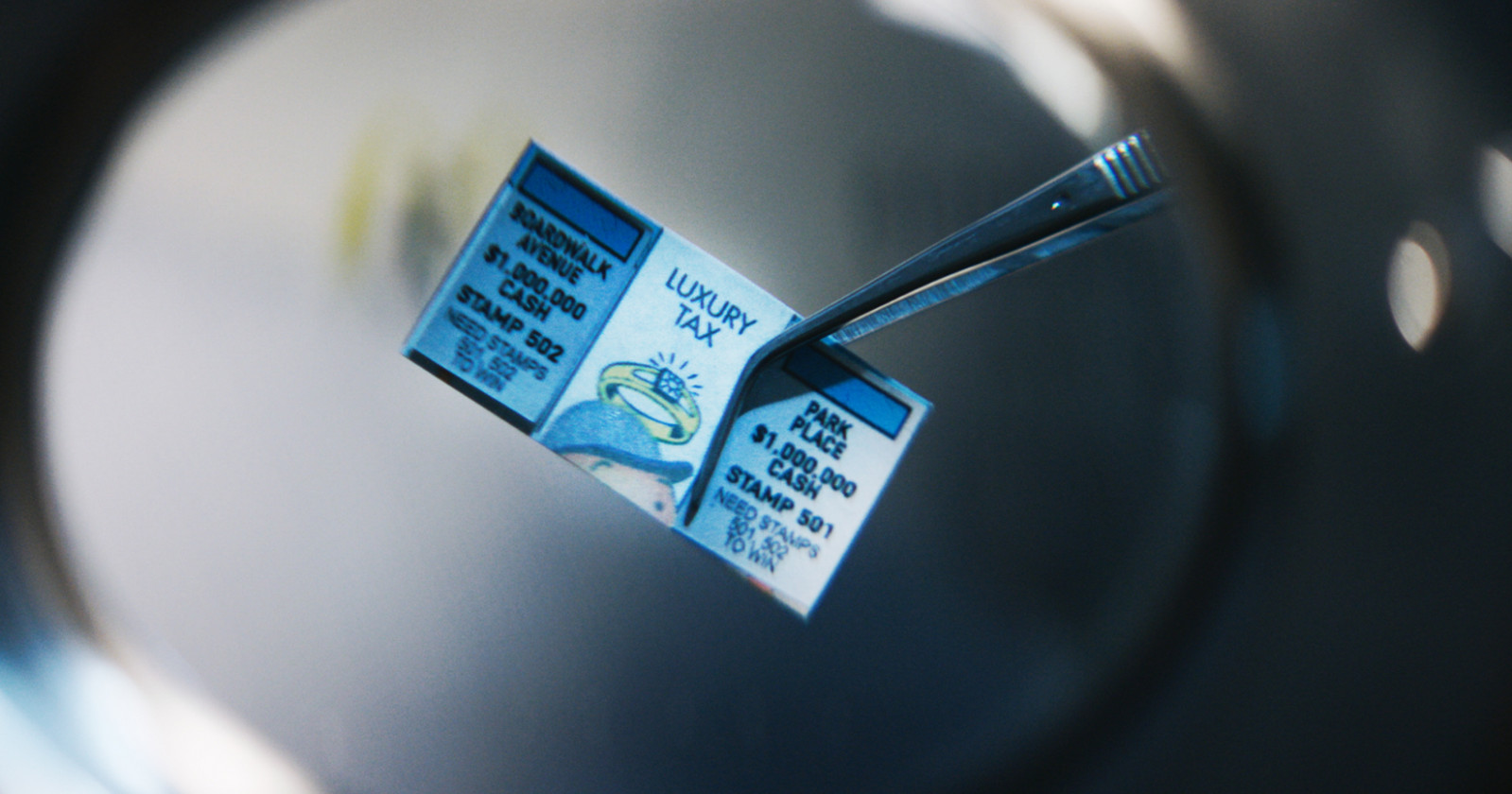
Fixing Luck. A Conversation with the Filmmakers Behind "McMillions"06.03.2020
At first glance, HBO’s six-part documentary series seemingly reaffirms the well-worn maxim about truth being stranger than fiction. Fiction, after all, requires meaning and some underlying structure. Meanwhile, the truth about how a network of smalltime crooks and mobsters managed to rig the McDonald’s Monopoly sweepstakes for over a decade had to be pieced together from hundreds of pieces so small as to be almost imperceivable, meticulously extracted from the reality around us. Join us for a conversation with the filmmakers behind McMillions, James Lee Hernandez and Brian Lazarte,about human imperfection, as well as finding truth in fiction and fiction in truth.
The FBI closed its investigation into the rigging of McDonald’s Monopoly sweepstakes back in 2001. What inspired you to take another look into the story, and then turn it into a docuseries, nearly twenty years later?
James Lee Hernandez: There is no one short answer to that particular question, but everything began with a post I read on Reddit in 2012, which claimed that were no genuine winners in the McDonald’s Monopoly sweepstakes and that all of the prizes were cashed by people linked with a single man who orchestrated the fraud. As a child, I was obsessed with those scratch-offs that you could trade in for prizes [ranging from a free McDonald’s meal up to $1M—ed.], and my first job was with McDonald’s, so naturally I was drawn to the story. Unfortunately, the text linked by the post offered a handful of facts and little else. So I began researching the case myself online and elsewhere, but most of the write-ups were similar and rather dry. But between the lines they were crammed with so many astonishing details, that it made me dig deeper into the story, and eventually led me to submit a FOIA request. The whole research process took me about three years, but it was very much worth it, because aside from the incredible story of multimillion dollar fraud scheme, I managed to find the names of the FBI agents who spent years investigating it and putting a case together. It turned out that very few people actually spoke with them about the investigation and they really wanted to tell their story and share their success.
Brian Lazarte: It really was incredible because in the 1990s got very intense about the McDonald’s lottery—to the point of obsession in some cases. In a sense, it embodied the best about the American Dream, transcending generations, class barriers, and other differences, while its relentless media promotion made it ubiquitous. So to learn that the game was rigged and the winnings were obtained through fraud was devastating. Especially for people like us, who grew up in the 1990s and were shaped, to some extent, by the sweepstakes. After James reached out and told me about the case, we quickly decided that more digging had to be done. At that point, we had no idea of the staggering scope of the deception, which proved itself more highly organized and far-reaching than anyone could have expected. Neither did we know whether any of the “winners” would speak to us all these years later. But it was obvious to us that we couldn’t just let the story go, it was obvious that we never get another opportunity like this one. We struck a deal with Unrealistic Ideas, a production company owned by Mark Wahlberg, Stephen Levinson, and Archie Gips, and then with HBO. Much respect to all involved for backing a crazy project like this, helmed by two rookies, and taking such good care of us.
Alright, so why hasn’t the case drawn more media attention throughout all these years? Why have so few people been privy to the details? It was a slap to the face of all America.
James Lee Hernandez: The answer is 9/11. In August 2001, the McDonald’s Monopoly lottery fraud case began picking up publicity, with media outlets reporting on the latest developments, and some of the figures involved were officially indicted. Preliminary hearings were scheduled for September 10 and 11. Incredible, isn’t it? After the tragic events of 9/11, the media reported on little else for months. And no wonder. Absent public interest, the McDonald’s fraud case faded away into the background. What a bizarre, ironic twist of fate.

Why do you think Hollywood failed to take interest in the story? The whole affair seems tailor-made for a limited TV miniseries with an ensemble cast. One of the story’s villains looked like a combination of Marlon Brando and Joe Pesci and thought of making a career in the movie industry—even lining up a part alongside Jackie Chan in Shanghai Noon!
James Lee Hernandez:Probably because so few people heard about the case. Right now there’s both a feature film and a TV series in the works, so it’s possible that the story behind McMillions will eventually spawn a movie adaptation, but the media frenzy following 9/11 effectively sidelined the whole McDonald’s lottery fraud case. Aside from that, knowing a subject in and out is not enough to squeeze an interesting film or a TV series from it. You have to know how to creatively adapt it for the screen. We spent years perfecting the shape of this project and learning how to communicate facts about the case in a way that would best capture the attention of the broadest audience possible.
How did you tackle the editing of those vast amounts of footage that fed into the series? Not only did you use archival footage and the interviews you shot, the series also features a number of live action reenactments filmed with real actors.
Brian Lazarte: Both James and I have an editing background, so we’re well aware of how careful and meticulous use of footage can shape storytelling. From the very start, we’ve been treating McMillions as a six-hour docuseries that would have to be split into separate episodes, clear in terms of both structure and narrative. The editing process proceeded more or less alongside our interview shooting schedule and research efforts, so we had to be really flexible. (laughter) We knew that we wanted the first episode to begin on a more amusing tone, with funny FBI anecdotes about the early stages of the investigation, and then transition into a more pessimistic atmosphere, which would blend black humor with human drama. We also knew that all of the gaps in the archival footage would have to be filled using live-action footage shot with actors, so we mapped out all of these gaps in editing and then shot all of the needed scenes in one swoop. The process began in 2017 and took about fifteen months in total.
We wanted the audience to feel a part of the investigation. Additional perspectives are introduced in subsequent episodes, we go back in time, learn more about the colorful lives of the conspirators, while the plot thickens and grows in scope.
Your depiction of the investigation unfolds in a nearly chronological manner. The audience discovers new clues along with the investigating FBI agents, experiences the emotional ups and downs of the case, meets ever new conspirators. Was this sort of storytelling approach your intention from the beginning?
James Lee Hernandez: Yes and no. The approach stemmed primarily from how we ourselves made our way through the maze and on to the truth hidden behind the conspiracy, unmasking the cabal, discovering the wild coincidences. When we met and spoke with the FBI agents assigned to the case and saw how they turned an ordinary hunch about a crime into a sprawling criminal case, we realized that we initially misjudged what was the greatest aspect of the narrative. McMillions tells the story of the Monopoly lottery fraud case from the perspectives of a number of people involved. We open in the first episode with FBI agents, usually portrayed in TV and film as either bureaucrats or wild nonconformists. (laughter) Here, however, they’re a tight team of highly creative law enforcement officers, who get excited about new clues and disappointed when they run into dead ends. We wanted the audience to feel their excitement, particularly in moments like then they set up a front production company supposedly “commissioned by McDonald’s” to film video interviews with lottery winners. We wanted the audience to feel a part of the investigation. Additional perspectives are introduced in subsequent episodes, we go back in time, learn more about the colorful lives of the conspirators, while the plot thickens and grows in scope. Then, the denouement, which feels truly taken out of the mind of a Hollywood screenwriter.
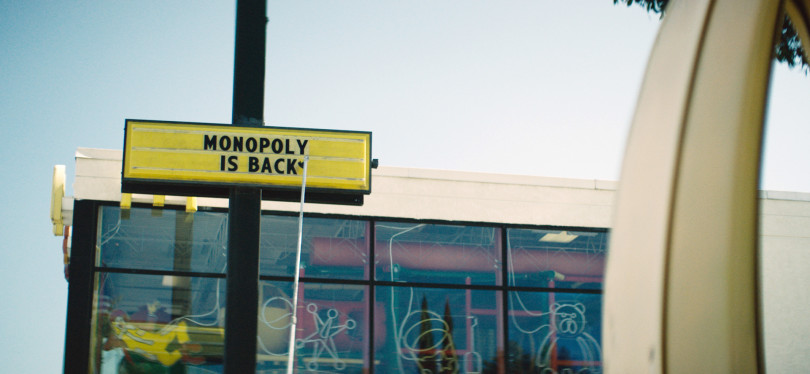
Seeing how McDonald’s employees viewed the case must also have been an interesting experience to most of your viewers.
Brian Lazarte: That’s true. Most people are genuinely shocked to learn that McDonald’s was in no way involved with rigging their lottery. It’s much easier to see the case as an indictment of corporate America than it is to take a long, hard look at ourselves and the people around us. In the 1990s, literally everyone wanted to win that lottery and be famous. Now, after McMillions has made the rounds, the reactions might be altogether different, but a few years ago, if offered a winning scratch-off ticket for a lottery in exchange for a portion of the winnings, many of us would say yes without a second thought. I definitely would have considered it back when I was having money trouble. (laughter) And there’s nothing inherently wrong with it, it’s a normal, human reaction. We just wanted to make a series about people, and leave the opinions about our sprawling cast of characters to the viewers.
We shouldn't just dismiss the opportunists out of hand. We believe we ought to hear and examine their stories and made that notion the basis for McMillions. The guy who orchestrated the entire thing was not evil by any measure, but he wasn’t exactly squeaky clean, either.
But we’re still talking about people involved in a criminal enterprise. It’s a given with any lottery, or any opportunity to win a large sum, that there will be people trying to “game the system” somehow, but that does not in any way exonerate the people who decided to get involved.
James Lee Hernandez: People are opportunistic by nature, but that does not mean we should just dismiss the opportunists out of hand. We believe we ought to hear and examine their stories and made that notion the basis for McMillions. The guy who orchestrated the entire thing was not evil by any measure, but he wasn’t exactly squeaky clean, either. He was the type of guy who, upon identifying considerable security holes in the lottery system, decided to get rich off his findings rather than report them to McDonald’s authorities. It could be said that he found himself in the right place at the right time. Just like those who helped him and those who appeared in the media as the lottery “winners.” But, in a sense, they were victims, too. Like Gloria Brown, who we meet in episode three. She believed the rigged ticket was a godsend to her and her child, but when she realized what a trap it was, it was already too late for her to get free. Other “winners” lost their jobs, their financial liquidity, some lost their families. Every action generates a reaction, and all actions have consequences.
How did the people portrayed or featured in the series receive McMillions?
Brian Lazarte: If we’re not in prison, I guess it means that we didn’t step on any toes. (laughter) The McDonald’s people really liked it, although they were the initially the most hesitant about the project. The “winners” also received it very warmly, too, probably because we were very mindful about not crossing any boundaries. We were very aware throughout the production how traumatic “winning” the lottery proved for many of them them, and we wanted to use only those portions of their interviews that we needed to tell the story right. Some of the people we interviewed lied through their teeth, while others went through hell reliving those events, so we didn’t want to attack or bring down anyone. But we’ve heard back that watching the series was a somewhat therapeutic experience for some. That made us very glad.
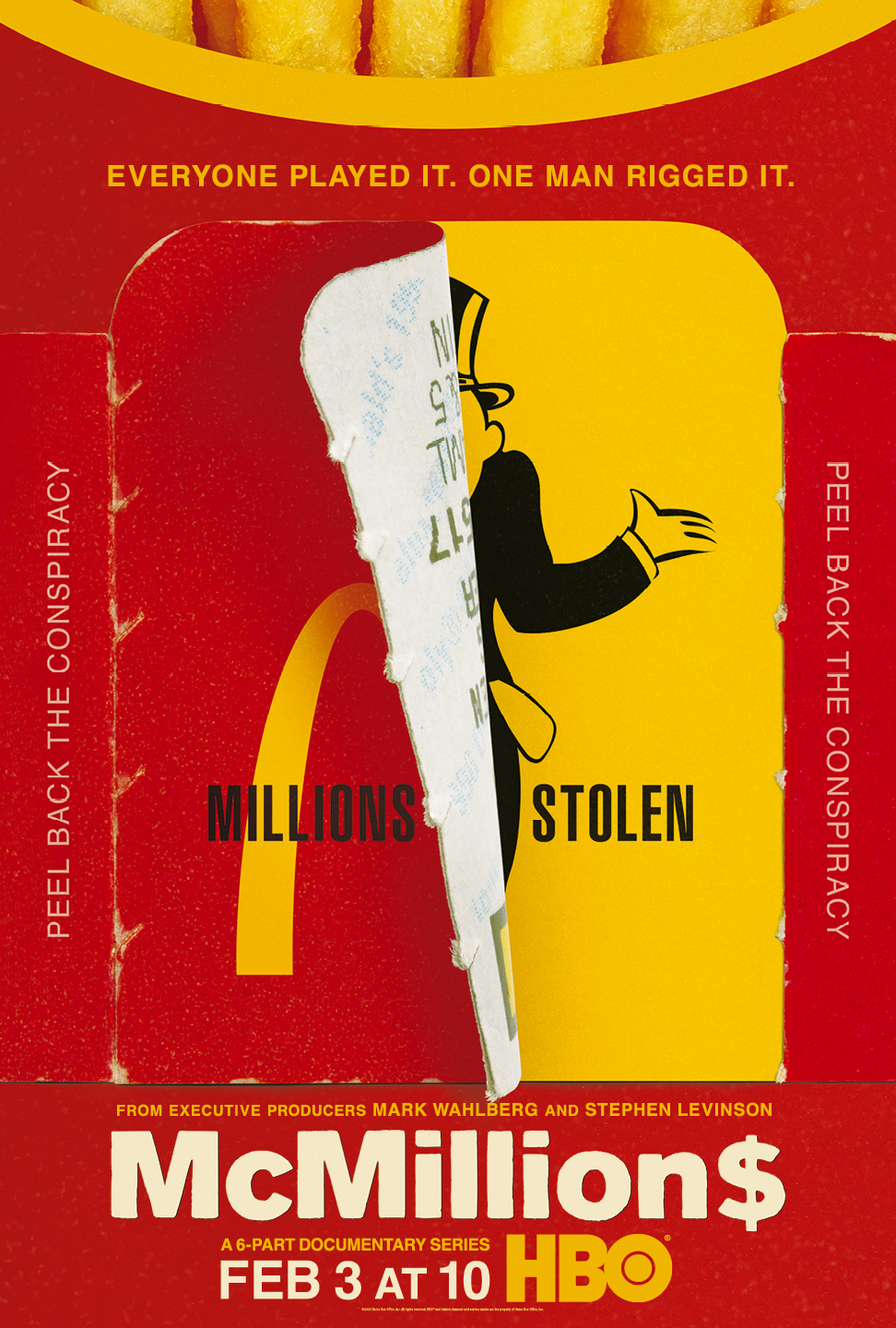
see also
- "Gunda": See the trailer for the documentary lauded by Joaquin Phoenix and Paul Thomas Anderson
News
"Gunda": See the trailer for the documentary lauded by Joaquin Phoenix and Paul Thomas Anderson
- Scientist to Tell Future from Blood. Metabolic Biomarker Level Will Help Predict Risk of Death

News
Scientist to Tell Future from Blood. Metabolic Biomarker Level Will Help Predict Risk of Death
- Aneil Karia, the director of the Oscar-nominated short "The Long Goodbye": Tangible anxiety
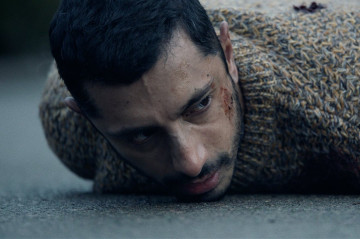
People
Aneil Karia, the director of the Oscar-nominated short "The Long Goodbye": Tangible anxiety
- Chris Duffey | About Aimé – the co-author of Superhuman Innovation

Opinions
Chris Duffey | About Aimé – the co-author of Superhuman Innovation
discover playlists
-
Papaya Young Directors 7 #MASTERTALKS
 18
18Papaya Young Directors 7 #MASTERTALKS
-
Lądowanie na Księżycu w 4K
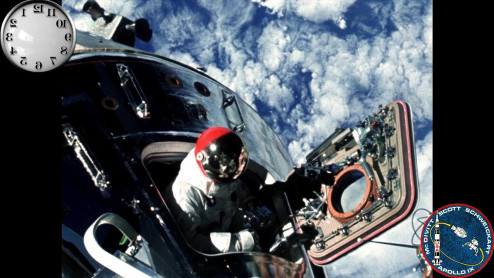 05
05Lądowanie na Księżycu w 4K
-
CLIPS
 02
02CLIPS
-
PZU
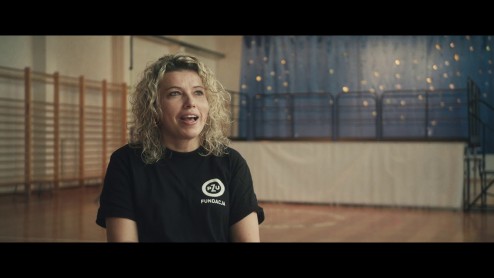 04
04PZU
